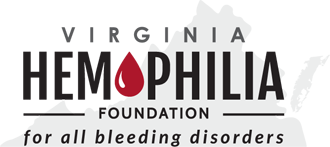In the 2025 session, VHF and HACA monitored bills related to school health policies, health insurance, medical debt, drug affordability, and the budget bill, including threats to Medicaid.
During the 2025 session, a few measures passed, while others failed. The school health policy bill of interest to our community is HB 1700, patroned by Del Nadarius Clark, This bill adds a section to 22.1-274.7 of the Code of Virginia that requires local school boards to develop and implement a bleeding control program in each public elementary and secondar school division and to place bleeding control kits in easily accessible locations. This bill passed with a large majority in both houses. It will take effect July 1, 2025. When implemented, the revised policy should help minimize excessive bleeding among students and school employees.
Three insurance bills passed that Virginia already had in place but not enshrined in law. HB 2099 (Del Maldonado) and SB 1215 (Sen Pekarsky) are identical bills that require health insurance carriers to have the right or obligation to require prior authorization for health care services. HB 2258 (Del Delaney) requires that the Bureau of Insurance study step therapy protocols for health benefit plans. The inherited bleeding control community has monitored and expressed concern regarding the prior authorization and step therapy procedures. Given the wording and nature of the two measures, our community is unlikely to experience adverse insurance decisions, but we will need to remain vigilant.
In the 2025 session, Del Karrie Delaney introduced HB 1725, the Medical Debt Protection Act, which will prohibit large health care facilities or medical debt buyers from charging interest or late fees on medical debt or from using extraordinary collection actions to collect debt. The bill has a delayed enactment date of July 1, 2026. The Virginia Poverty Law Center followed this bill closely, including an overview of medical debt and how the bill proposes to provide relief to Virginians.
Regarding the costs of drugs, some states have instituted Prescription Drug Affordability Boards (PDABs). HB 1724 passed in both houses and is waiting for Governor Youngkin to sign into law. We have expressed concerns about PDABs, including potential that they could limit access to essential treatments and that patients need to have a voice in the decision making. Since the first PDAB was passed in 2019, no PDAB has saved a patient or the state implementing them any money. The bill passed last year, and the Governor vetoed it. We are hoping that he will do the same this year.
Regarding the Virginia budget, 2025 is the second year of the budget biennium. That means that in this General Assembly session, the biennial budget is amended, not introduced for the biennium. The Commonwealth Institute released an excellent budget side-by-side report that describes the outcomes of each part of the budget amendment process, including the Governor’s proposed amendments (made in December 2024), the House and Senate’s budget versions, and the final conference report that was approved by the General Assembly on February 22. The next step in the process will be for the Governor to make his recommendations on the budget bill and send them back to the General Assembly for final disposition.
The turmoil regarding federal spending has led to deep concern over any possible federal cuts to state Medicaid budgets, and at the time of this writing, this situation remains in limbo. Virginia’s 2018 budget language to expand Medicaid included trigger language requiring the state to eliminate Medicaid expansion if the federal funding drops below the current 90% threshold. During the Virginia budget deliberations, a trigger law was introduced that would have required action within 30 business days if the federal government were to reduce federal grants including Medicaid by at least $100 million. This trigger law amendment didn’t make it into the final budget bill. So, at the present time, we are all still in limbo about the potential threat of federal budget cuts as well as the Virginia response. One action that all can take right now is to subscribe for email updates at NBDF.
What happens next? The Governor has 30 days from the date of “sine die” adjournment (Feb 22) to take action on the bills sent to him. His possible actions include signing without recommendations, signing with recommendations, not signing (in which case the bill becomes law without his signature), and vetoing. You can visualize the current statistics of all the bills in one relatively easy chart by clicking here. Simply put, there are now 959 bills that are pending final action (out of a total of 3107 bills introduced for the “short” 45-day session).
The General Assembly’s work is not finished. The members will review the Governor’s recommendations and return for the reconvened session on April 2 to consider these recommendations.
If you have any questions, don’t hesitate to contact me at bowerslanier@gmail.com.
